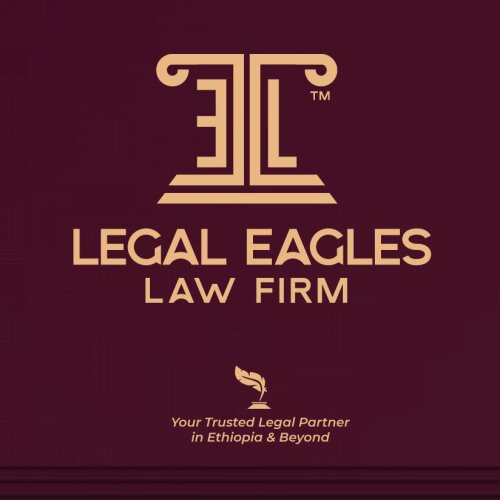Best Foreclosure Lawyers in Ethiopia
Share your needs with us, get contacted by law firms.
Free. Takes 2 min.
Free Guide to Hiring a Real Estate Lawyer
Or refine your search by selecting a city:
List of the best lawyers in Ethiopia
About Foreclosure Law in Ethiopia
Foreclosure in Ethiopia is the legal process by which a lender seeks to recover the balance of a loan from a borrower who has stopped making payments. This is achieved by forcing the sale of the asset (often real estate) used as the collateral for the loan. Foreclosure in Ethiopia is overseen by the judicial system and is governed by various laws designed to protect both lenders and borrowers. The process can be intricate, involving multiple legal provisions and procedural requirements.
Why You May Need a Lawyer
Engaging a lawyer may be vital for several reasons: - If you're facing foreclosure, a lawyer can help negotiate with lenders, potentially finding ways to restructure your debt or advocate for loan modifications. - Lack of understanding of local laws can lead to unfavorable outcomes; hence, legal representation can ensure that your rights are protected. - If you are a lender, a lawyer can assist in efficiently navigating the foreclosure process, ensuring compliance with local regulations, and minimizing legal liabilities. - Legal advice can be crucial for evaluating all available options, such as redemption rights or defensive actions against foreclosure.
Local Laws Overview
Ethiopian foreclosure law is a complex blend of civil procedures and special mandates that protect both borrower and lender interests. Key aspects include the notification process, borrower’s right to contest, timelines for proceedings, and the specific requirements for a sale of foreclosed properties. Laws also stipulate the manner in which proceeds from a foreclosure sale are distributed. Familiarity with these laws can be essential for anyone involved in or facing foreclosure.
Frequently Asked Questions
What is a judicial foreclosure?
A judicial foreclosure involves the sale of a mortgaged property under the supervision of a court, following legal proceedings initiated by the lender when the borrower defaults on payments.
Can foreclosure be avoided in Ethiopia?
Yes, foreclosure can sometimes be avoided by negotiating loan modifications, restructuring the debt, or paying off the outstanding amount before the foreclosure process is finalized.
What rights do borrowers have in a foreclosure process?
Borrowers have the right to receive proper notification, contest the proceedings in court, and possibly redeem the property before the sale if financial terms can be met.
How long does the foreclosure process take in Ethiopia?
The process length can vary significantly depending on the complexity of the case and proceedings, ranging from a few months to several years.
What happens to excess proceeds from a foreclosure sale?
Excess proceeds, after settling the debts secured by the property and any associated costs, generally revert to the borrower.
Can a foreclosure decision be challenged?
Yes, borrowers can challenge foreclosure decisions in court, especially if there were procedural errors or the terms of the loan were misrepresented.
What is the role of a lawyer in a foreclosure process?
A lawyer provides legal representation and advice, ensuring compliance with laws, negotiating on behalf of the client, and defending borrower rights in court.
Are there alternatives to foreclosure?
Alternatives include loan modification, short sale, refinancing, or a deed in lieu of foreclosure, where the borrower voluntarily transfers property ownership to the lender.
What is a short sale?
A short sale involves selling a property at a price less than the outstanding mortgage, with lender approval, as an alternative to foreclosure.
What should lenders consider during foreclosure?
Lenders must ensure compliance with all procedural and legal requirements, properly notifying the borrower, and handling the resale process in accordance with the law.
Additional Resources
For more information or assistance in foreclosure cases, consider contacting: - The Ethiopian Ministry of Justice for legal frameworks and information. - Local Bar Associations for lawyer recommendations. - Consumer protection organizations that can provide counseling and mediation services.
Next Steps
If you need legal assistance in foreclosure, consider taking the following steps: - Consult with a qualified lawyer specializing in real estate or foreclosure law. - Gather all relevant documentation related to your mortgage and financial statements. - Engage with lenders proactively to explore potential alternatives to foreclosure. - Attend all court proceedings and adhere to legal timelines to ensure you are fully represented and your rights are protected.
Lawzana helps you find the best lawyers and law firms in Ethiopia through a curated and pre-screened list of qualified legal professionals. Our platform offers rankings and detailed profiles of attorneys and law firms, allowing you to compare based on practice areas, including Foreclosure, experience, and client feedback.
Each profile includes a description of the firm's areas of practice, client reviews, team members and partners, year of establishment, spoken languages, office locations, contact information, social media presence, and any published articles or resources. Most firms on our platform speak English and are experienced in both local and international legal matters.
Get a quote from top-rated law firms in Ethiopia — quickly, securely, and without unnecessary hassle.
Disclaimer:
The information provided on this page is for general informational purposes only and does not constitute legal advice. While we strive to ensure the accuracy and relevance of the content, legal information may change over time, and interpretations of the law can vary. You should always consult with a qualified legal professional for advice specific to your situation.
We disclaim all liability for actions taken or not taken based on the content of this page. If you believe any information is incorrect or outdated, please contact us, and we will review and update it where appropriate.
Browse foreclosure law firms by city in Ethiopia
Refine your search by selecting a city.















